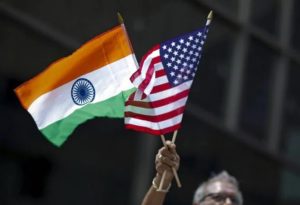US withdraws India’s GSP benefits
The United States of America (USA) President Donald Trump terminated India’s designation as a beneficiary developing nation under the GSP (Generalized System of Preference) trade program w.e.f. 5 June 2019.
Key Highlights
- The US has withdrawn preferential tariffs to Indian exports. The step was taken on determining that India has not committed to provide “equitable and reasonable access to its markets” for the US.
- Under the US’s oldest preferential trade scheme called GSP, India is the largest beneficiary nation and exported goods worth $6.35 billion under the scheme in 2018.
- Reasons: cited by trump administration are trade imbalance with India, no access to Indian market for US dairy, medical device industry and issues related to data localisation norms.
- Outcome: As per the traders, exports are likely to become costlier, even less competitive in specific sectors, but the overall impact would be minimal on India’s outbound trade with US. Although, some specific exports from India in sectors like leather, jewellery, agricultural products chemicals and pharmaceuticals are set to face higher costs and competition.
About GSP benefits
- The Generalized System of Preferences are unilateral, non-reciprocal and non-discriminatory benefits extended by some developed nations to developing countries.
- Background: GSP was instituted on 1 January 1976, by Trade Act of 1974. The GSP program has effective dates which are specified in relevant legislation thus in order to remain in effect it requires periodical reauthorization.
- Objective: The U.S. designed trade program seeks to promote economic growth in developing countries by providing preferential duty-free entry for up to 4,800 products from 129 designated beneficiary countries and territories.
- Eligibility Criteria: As per US norms, to qualify for GSP a beneficiary nation must meet 15 discretionary and mandatory eligibility criteria established by US Congress which includes providing US with equitable and reasonable market access, respecting mutual and internationally recognised worker rights, working for combating child labour and providing adequate and effective intellectual property rights (IPR) protection. But, reinstatement of GSP benefits is conditional.
Way Forward
- As part of bilateral trade discussions between India and US, India had offered resolution on significant US requests in an effort to find a mutually acceptable way forward but unfortunately that this did not find acceptance by US. Therefore, like US and other nations India shall always uphold its national interest in these matters and should consider significant development imperatives and concerns and its people who also aspire for better standards of living.
- In any bilateral relationship particularly in area of economic ties, there are issues which get resolved mutually from time to time. Thus India views this issue as a part of this regular process and will continue to build on strong ties with US, both economically and people-to-people. India is confident that two countries will continue to work together intensively for further growing these ties in a mutually beneficial manner.
Month: Current Affairs - June, 2019


